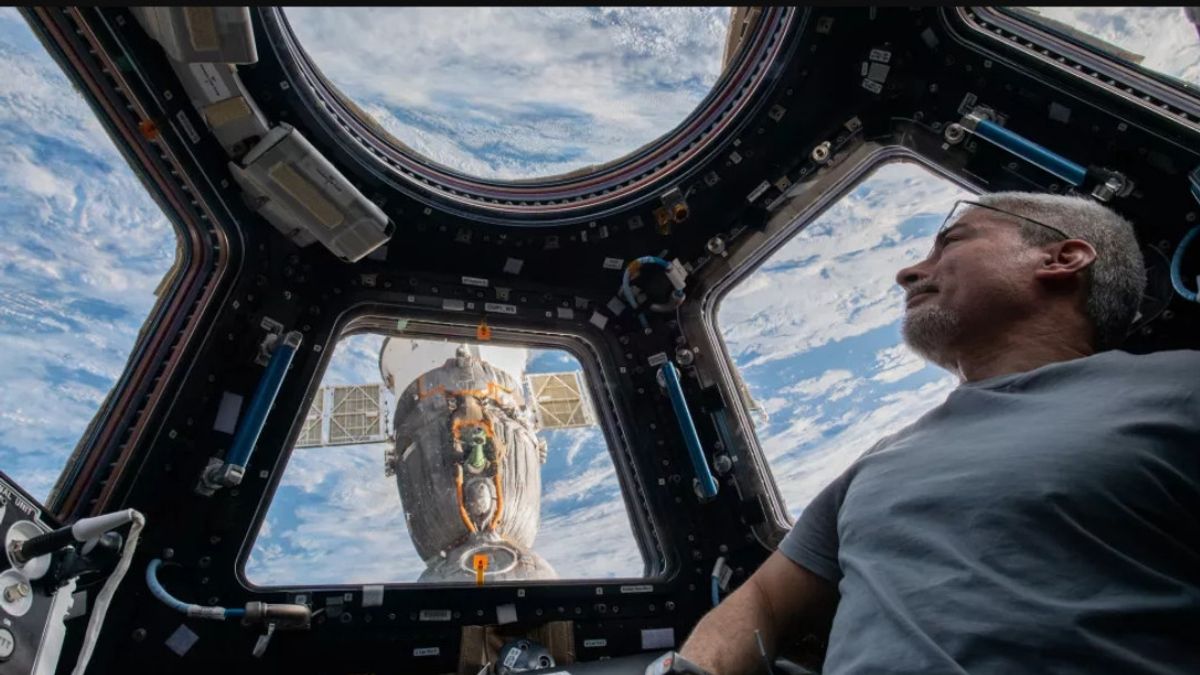JAKARTA - The plan to return NASA astronaut Mark Vande Hei from the International Space Station (ISS), later this month, will continue to be carried out by riding a Russian rocket to Earth.
Despite deepening tensions between countries, NASA insists Vande Hei's return plans will not change. Even as Russia's invasion of Ukraine has resulted in canceled launches, broken contracts, and an escalating war of words by the hardline leader of the Russian Space Agency.
"I can tell you for sure: Mark is going home with that Soyuz. We're in communication with our Russian counterparts, there's no doubt about that," said NASA's ISS Program Manager, Joel Montalbano.
Vande Hei is not alone, he is also accompanied by cosmonauts from the Russian Space Agency (Roscosmos) Pyotr Dubrov and Anton Shkaplerov who will board the Russian Soyuz spacecraft on March 30.
Later the three astronauts will land on the steppes of Kazakhstan. About 20 NASA employees will be waiting there to help assess Vande Hei's physical condition.
Vande Hei has spent nearly a year living with microgravity, which can be very hard on the human body and brought him back to Houston, where NASA's human space program is based.
Launching Space, Tuesday, March 14, by the time of his return, Vande Hei had recorded 355 days in space. This is a new record for US astronauts. The world record of 438 continuous days of living in space still belongs to Russia.
Meanwhile, Russia's invasion of Ukraine has prompted the US and other countries to impose new economic sanctions on Russia. Roscosmos and Russia, have denounced the sanctions and pulled out of some longstanding partnerships in response.
Roscosmos announced late last month that it was halting launches of Russian-made Soyuz rockets from the European Spaceport in French Guiana. And in early March, the agency said it would no longer sell Russian rocket engines to American companies.
However, Montalbano stated that the orbiting laboratory would operate as normal despite problems in the field.
"We don't see any impact (from) what is happening around us. We are aware of what is happening, but we can do our job to continue operations," said Montalbano.
He also revealed that the invasion did not impair morale or professionalism among the seven astronauts, namely four Americans, two Russians and one German currently residing on the ISS.
NASA wants to keep the space station running until 2030, as the European, Japanese and Canadian space agencies are doing. While Roscosmos has not committed beyond an early end date of 2024 or so.
The US and Russia are the main operators of the orbiting ISS outpost, which is permanently occupied for 21 years. Even until SpaceX started launching astronauts in 2020, NASA was often boarding Russian Soyuz capsules for tens of millions of dollars per seat.
The English, Chinese, Japanese, Arabic, and French versions are automatically generated by the AI. So there may still be inaccuracies in translating, please always see Indonesian as our main language. (system supported by DigitalSiber.id)











